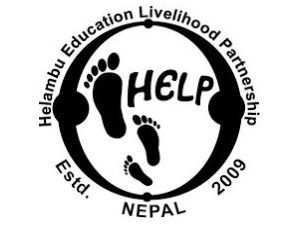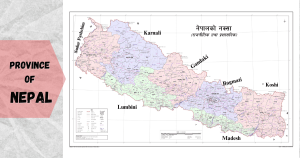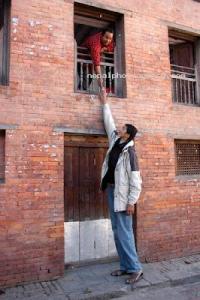
HELP Organization
HELP Nepal, also known as Helambu Education Livelihood Partnership Nepal, is a non-governmental organization dedicated to improving the lives of communities in the Helambu region of Sindhupalchowk, Nepal. The organization focuses on addressing the needs of the local population through various educational and livelihood initiatives.
Education is a primary area of focus for HELP Nepal. The organization works towards improving access to quality education in the Helambu region by building and renovating schools, providing educational materials, and supporting teacher training programs. They aim to create a conducive learning environment for children, empowering them with knowledge and skills that will contribute to their personal growth and the development of their communities.
Livelihood enhancement is another important aspect of HELP Nepal's work. The organization aims to improve the socio-economic conditions of the local population by promoting sustainable livelihood options. They provide vocational training, skill development programs, and support for income-generating activities. By empowering individuals with marketable skills and facilitating income generation, HELP Nepal helps to uplift the living standards and economic stability of the communities they serve.
In addition to education and livelihood initiatives, HELP Nepal also engages in community development programs. They work closely with local communities, fostering community participation and ownership in the projects. The organization supports infrastructure development, promotes gender equality, and advocates for social justice in the region. They strive to create an environment where individuals and communities have equal opportunities for growth and development.
HELP Nepal collaborates with various local and international partners, including government agencies, non-profit organizations, and donors, to implement their programs effectively. Their approach emphasizes sustainability, local empowerment, and long-term impact. Recently, HELP celebrates its 12 anniversary.
Our Background
Helambu Education and Livelihood Partnership (HELP) is a local NGO. It was established in 2009 with the goal of improving the quality of education in remote village schools in Sindupalchowk, which is about 70 kilometres northeast of Kathmandu. Our education programs have supported approximately 90 schools, benefiting over 10,000 children in the outlying and impoverished villages of Helambu Valley and the adjacent valleys. The majority of our programs are funded by a UK-based charity called the Mondo Challenge Foundation. We work closely with communities and education authorities to achieve sustainable results and empower villagers. Our key team members are from Helambu and attended local schools. We have a deep understanding of the region's needs and excellent project management skills. Our Director, Jimmy Lama, obtained a Master's degree in International Development from the Institute of Development Studies at Sussex University, UK.
Soon after the first earthquake in April, we quickly delivered emergency supplies and shelter. In total, we supported over 3,000 families in 32 villages in the Helambu region. We also constructed 226 Temporary Learning Centers (TLCs) in 45 schools. Our current priority is to rebuild classrooms and damaged facilities, as well as provide desks and books that were lost in the earthquake.
According to government figures, out of the 545 schools in Sindhupalchowk district, all of them were destroyed. This presents an enormous challenge for the government, and the chances of receiving attention for our more remote schools from other agencies are low. Therefore, on the 7th of October 2015, we signed a Memorandum of Understanding (MoU) with the Department of Education to assist in the reconstruction and rehabilitation of 15 schools.
We are delighted to announce that we have finally completed the extensive reconstruction of school projects. By June 2019, we had rebuilt thirteen schools in Sindhupalchowk district as per the MoU signed with the Department of Education in October 2015. We express our gratitude to all the supporters who have joined us, including HELP and the Mondo Foundation, for their contribution over the years.
This year, we have launched a brand new program called the SAATHI Teachers Programme in partnership with PaanchPokhari Rural Municipality. It is a comprehensive update to our previous Teachers Funding Programme. Through the SAATHI Teachers Programme, we support five schools within PaanchPokhari Rural Municipality, with two Saathi teachers assigned to each school. We are pleased to see the continuity of our volunteers and have received over fifty volunteers in the past 12 months, particularly from Cambridge and Loughborough University. Additionally, we have awarded 61 scholarships to students, investing in young people who we hope will return to their villages and contribute their skills and talents to their communities, schools, and homes.
This year, we have distributed the highest number of school bags compared to any previous year. We distributed over 5,100 bags in the last 12 months. This was made possible through the generous funding received by our partner, the Piers Simon Appeal, which resulted in the largest partnership for the School in a Bag program. We distributed bags to 5,908 schoolchildren across 61 schools in 10 districts of Nepal.
Our History
Twenty years ago, Jimmy Lama was a student at Yangrima School in Helambu. He came from a family where education was not common, and children had to spend many hours each day helping with farming or taking care of younger siblings at home. However, Jimmy was fortunate and intelligent. He went on to study in Kathmandu and Sussex, earning degrees. With excellent communication skills, he was invited to attend international conferences in various countries such as the USA, Canada, Europe, Australia, Japan, and China.
In 2008, Jimmy spent nine months working with the Mondo Challenge Foundation in the UK, an international development charity that supports grassroots projects focusing on education and livelihood in developing countries. When he returned to Nepal, Jimmy realized that he could use his skills and connections to improve the education situation in government schools in the Helambu region.
Jimmy formed a team that included his friends Chiring Lama and Nima Tshering Lama, their teacher Ram Krishna Shahi, and Purna Gautam, the headmaster of Melamchi Gyan. They conducted a needs assessment at five schools in the Helambu region. Based on the assessment, they created a proposal that secured an initial grant to start their operations. HELP, an NGO, was officially registered in Nepal in 2009 and began working with ten partner schools in the Helambu region. Their work involved various activities such as building classrooms and toilets, providing access to drinking water, supplying library books, equipping schools with sports materials, providing desks and benches, sponsoring impoverished children, and paying salaries for additional teachers. The aim of HELP was and continues to be supporting the development of government schools in the Sindupalchowk district in collaboration with local school management committees.
Subsequently, Jimmy was appointed as the Country Manager for Nepal by Anthony Lunch, the founder and Chief Executive of the Mondo Challenge Foundation. HELP became the organization responsible for channelling and managing funds raised in the UK and became the foundation's partner in Nepal. The connection between Anthony and Helambu goes back to the time when Jimmy and some of his HELP colleagues were students at Yangrima School in the 1990s. Anthony had supported the school, as his son had volunteered as a teacher there in 1991. This visit, during which Anthony walked for 10 hours from the nearest bus stop to the hilltop village where his son was teaching (with Jimmy being one of the students), inspired him to coordinate a network of supporters worldwide to raise funds and recruit volunteers for the school.
Our work has become even more important for the people of Helambu after the 2015 earthquake. Immediately following the earthquake, we started delivering emergency supplies and providing shelter. Overall, we supported over 3000 families in 32 villages in the Helambu region and built 226 Temporary Learning Centers in 45 schools. Our current priority is to rebuild classrooms and damaged facilities and provide desks and books that were lost during the earthquake. According to government data, out of the 545 schools in the Sindhupalchowk district, around 470 were destroyed. This presents a huge challenge for the government, and the chances of receiving support for our more remote schools from other organizations are low. Our task now is to assist with the rebuilding process, and we are collaborating with local communities and the Ministry of Education to achieve this.
Our Programme
HELP implements a diverse range of initiatives/programmes with the goal of enhancing the education and well-being of children and the entire community residing in the Helambu Valley.
1. Saathi Teachers Programme
The Saathi Teachers' Programme, operating within the Helambu Education and Livelihood Partnership (HELP), offers a valuable teaching opportunity for enthusiastic and qualified young individuals. This initiative aims to address the shortage of teachers in rural communities by providing teaching placements at basic-level schools (grades 1-5). Additionally, HELP extends support to high-needs schools by assigning Saathi teachers and facilitating the establishment of Early Childhood Development (ECD) classrooms.
Between 2019 and 2021, HELP conducted a successful pilot of this program in five schools within the Panchpokhari Rural Municipality, employing a total of 10 Saathis. Despite the challenges posed by the COVID-19 lockdown, the pilot schools witnessed significant improvements in both student retention and academic achievements. Building upon this success, HELP expanded the program to the Melamchi Municipality in 2021, enlisting the assistance of 9 additional Saathis.
The Saathi Teachers' Programme has fostered a positive learning environment for students, leading to an increase in classroom attendance ratios. To effectively manage this program and support the overall development of schools and students, HELP collaborates closely with relevant local government bodies and educational institutions.
2. Scholarship and Leadership Development Programme
The HELP Scholarship program was established in 2010 to support financially challenged students from Sindhupalchok in pursuing higher education. It began by assisting seven high-achieving students from Helambu who were facing financial constraints. Over the years, the program has grown to support an average of 40 students annually, benefiting a total of 555 students to date. The program aims to address the shortage of qualified teachers in rural communities and the low continuation rate of education after the Secondary Education Examination (SEE) in Sindhupalchowk District. Most higher education institutions post-SEE are private and expensive, primarily located in Kathmandu, making it difficult for students from the Helambu region to access education. The Scholarship Scheme for Higher Education provides financial support to academically gifted students from economically underprivileged backgrounds, with a focus on marginalized communities. The scholarship recipients are expected to return to their communities and volunteer for at least three months after completing their studies. The program has granted scholarships to over 200 students since its inception, and the graduates have made significant contributions to their communities as teachers, professionals, and agents of development.
3. School In A Bag (SIAB)
School in a Bag, a charitable organization located in the United Kingdom, is dedicated to providing support to marginalized young individuals who are confronted with war, famine, natural disasters, and poverty worldwide. They accomplish this by dispatching and financing School Bags filled with educational materials. These bags are carefully equipped with stationery supplies and learning resources that empower children to write, draw, colour, calculate, express themselves, and acquire knowledge. In 2012, HELP joined forces with School in a Bag, resulting in the distribution of over 18,000 School Bags until the conclusion of 2021. These bags serve as vital educational tools for young students in schools situated in rural regions of Nepal.
4. Volunteering Programme
Placing international volunteers at partner schools has been a significant project for us. We believe that connecting rural schools with people from different countries brings fresh ideas, enthusiasm, and lasting friendships, allowing children to expand their horizons and unlock their potential. Volunteer teachers bring a different approach to learning, introducing interactivity and inspiring local teachers. They make learning enjoyable and encourage regular attendance, boosting parents' interest in enrolling their children. Volunteers help with pronunciation, grammar, vocabulary, communication skills, and confidence levels. They also provide English and computer lessons for teachers after school, creating a sustainable impact.
Before their placement, international volunteers fundraise at least £300 for their school and our core projects, providing crucial income for our activities. We collaborate with partner organizations to recruit volunteers and place them at our partner schools. Since 2010, we have placed over a hundred volunteers at fifteen schools, with the numbers growing each year. This success is thanks to our international partners such as CU HELP, CUELST at Cambridge, OU HELP in Oxford, and ITA in Denmark.
5. Community Learning Building Support
HELP has launched a new initiative called the Community Learning Centre construction project, aimed at empowering local communities. Its primary goal is to establish a dedicated space where diverse community-level empowerment programs and training can take place. By establishing this community learning centre, HELP intends to create opportunities for collaboration with other agencies to expand the reach of community-level programs.
Where do we work?
We have been engaging in various work in different educational institutions since 2009 AD. We are engaging in many schools for their improvement. The list of some schools (where we work) are:
| S.N. | Schools |
| 1. | SHREE BHOTANG SECONDARY SCHOOL, BHOTANG |
| 2. | SHREE GANESH BASIC SCHOOL, LATU, TRIPURASUNDARI |
| 3. | SHREE KALIKA SECONDARY SCHOOL, TEKANPUR, TRIPURASUNDARI |
| 4. | SHREE LALIGURANS BASIC SCHOOL, DHUSKUN, TRIPURASUNDARI |
| 5. | SHREE MANGALAMAI SECONDARY SCHOOL, PISKAR- TRIPURASUNDARI |
| 6. | SHREE SETI DEVI BASIC SCHOOL, GHORTHALI, TRIPURASUNDARI |
| 7. | SHREE SARASWATI BASIC SCHOOL, MANEBHANJYANG, MELAMCHI |
| 8. | SHREE SATKANYA DEVI BASIC SCHOOL, MIGAU |
| 9. | DADUWA BASIC SCHOOL, DADUWA |
| 10. | SHREE PRAGYA BASIC SCHOOL |
| 11. | SHREE PANCHAKANYA BASIC SCHOOL |
| 12. | SHREE HIRADEVI BASIC SCHOOL |
| 13. | SHREE GOLMESWORI BASIC SCHOOL |
| 14. | SHREE SATKANYAMATI SECONDARY SCHOO |
| 15. | SHREE BACHCHHALAMAI BASIC SCHOOL |
| 16. | SHREE SATDHARA BASIC SCHOOL |
| 17. | SHREE SARASWATI BASIC SCHOOL |
| 18. | SHREE BUMESHWORI HIGHER SECONDARY SCHOOL |
| 19. | SHREE BHOTENAMLANG SECONDARY SCHOOL |




